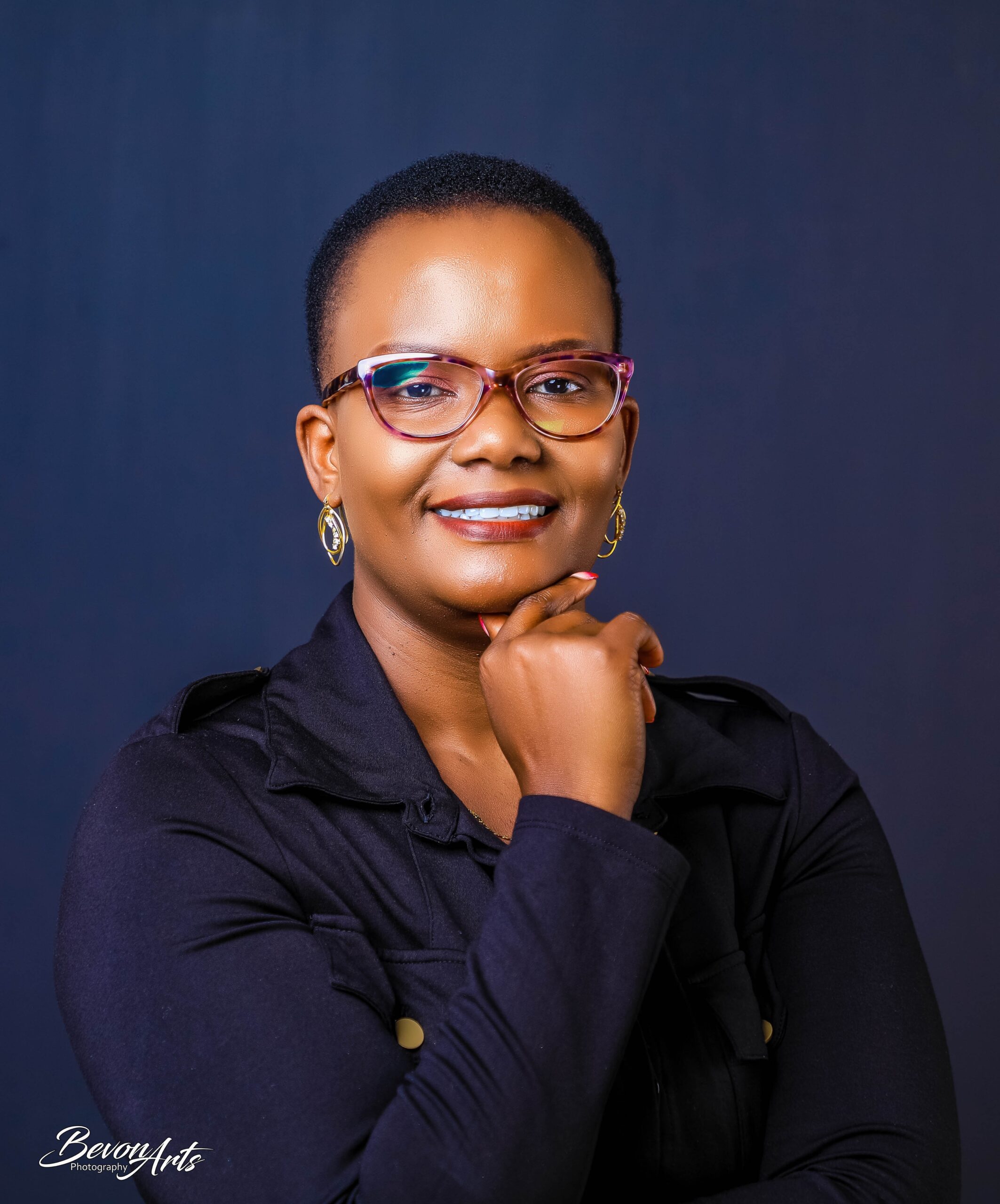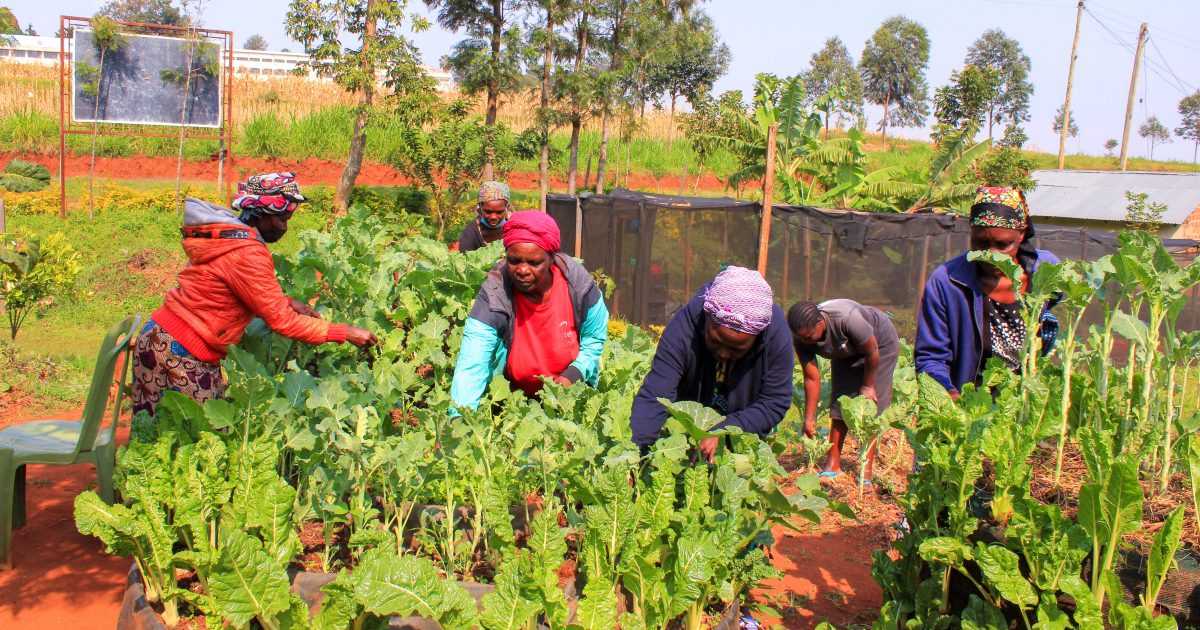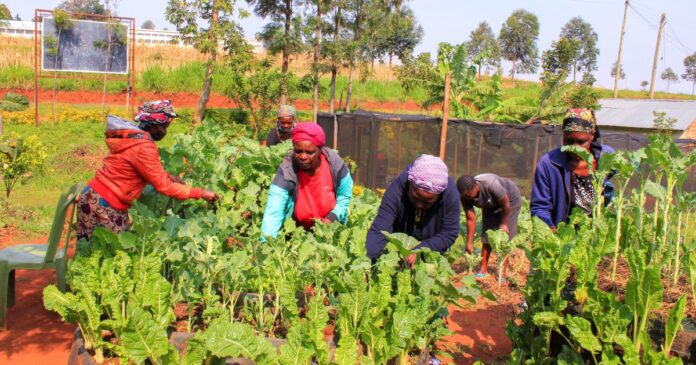|
Getting your Trinity Audio player ready...
|
By Omboki Monayo
Kisii County, Kenya: Esnas Nyaramba vividly remembers her childhood while growing up in the scenic, hilly region of Kisii County which is dotted with many homesteads and lush green farms.
“When I was born, I came to know that women were not supposed to speak, even in churches. They were only supposed to nod. The women were never allowed to sit at the same table with visitors,” the human rights and anti-FGM and SGBV campaigner tells Talk Africa.
The enforced silence was so pervasive that it even covered the girls’ interactions with their male siblings.
“We grew up knowing that we were not supposed to sit at the same table with the boy child. While each of the boys would eat from his plate, up to six of us were sometimes compelled to share food on one plate,” she said.
Fast forward to 2024, and the situation in the county known for vibrant commercial and agricultural activities is vastly different.
“Things have surely changed for women and girls in many ways. Now we know that the girl child can do what the boy child can do. We have seen significant advances by women in the academic and professional spheres, which is a testimony to the progress so far achieved in pushing for gender equality,” she says.
According to Dr Magdaline Magangi, who is a researcher, lecturer, and human rights advocate, women’s progress in Kisii County and Kenya as a whole has been slow but significant.

“I was born over four decades ago, and the state of women in the country was very different from what it is today. As far as I can see, girl child education has been given enough attention. Women have gone all the way to master’s and doctorate levels. Studies on Master’s and PhD enrollment have shown that more women taking up postgraduate studies compared to the men,” she points out.
Dr Magangi is happy that the country has made some notable strides in leveling the playing field for women in a largely male-dominated society.
“We now have the National Government Affirmative Action Fund (NGAAF) ran by the State Department of Gender Affairs and the Uwezo Fund AGPO as some of the ways through which women have been given opportunities to get economically empowered and become self-sustaining,” she says.
“Another way of empowering women-led enterprises was the inclusion of the Access to Government Procurement Opportunities (AGPO) clause in Article 227 of the 2010 Constitution, Article 55 on affirmative action and the 2015 Public Procurement and Asset Disposal Act,” she notes.
“By getting the AGPO certificates, women can access tender opportunities without having to compete at the same level as men in bidding for some of the government tenders,” adds the academic.

These examples of affirmative action have gone a long way in leveling the playing field because women may not always have the money to establish big enterprises, so it gives them a fair chance to compete.
Dr Magangi lauds the one-third gender rule “as a timely and relevant piece of legislation that has come to promote the empowerment of women”. She views the move as having been calculated to reduce the continued domination of the Assemblies by male representatives.
“We have a good number of elected women representatives and some representatives in the County Assembly. Had we not created the WR position, there would be fewer women in the County and National Assemblies today,” she admits.
Ms Nyaramba is however concerned that Kisii and Nyamira Counties remain shackled to the unyielding chains of male patriarchy.
“Despite the advances we have made as the Gusii region comprising of Kisii and Nyamira counties, we only have one MCA and no MP or Governor. In Gusii, there’s a notion that women cannot vie for a parliamentary seat, which is a serious hindrance to our community’s development,” says the human rights defender.
The outspoken human rights advocate sees the collective community mind that is anchored on patriarchy as hindering Gusii women’s quest to become elected leaders.
She attributes the less-than-impressive performance of female politicians in the Gusii region to the attacks meted out on them by male opponents.
“As county residents, we mostly look at the man from the physical side. Men tend to use what they have to pull her down. Whenever a woman seems to show strength or resolve to get elected, they are lured into situations where a photo can be taken while speaking to a man who is engaging her in conversation or greeting her, and this alone can be used to suggest that she is immoral, and then taint her candidacy,” she tells Talk Africa.
Esnas points to the nearby Homa Bay County as a shining example of voters making choices based on the competency of the candidates as opposed to merely dismissing them based on their gender.
“Homa Bay County is leading the way in transforming the Nyanza Region. There have been a lot of changes, with several women elected to the Assembly, and a popularly elected county governor,” the award-winning human rights defender points out.
Esnas, who doesn’t shy away from rooting for women, is particularly conscious of the support that menfolk can provide to ensure that the trend of viewing women as second-class citizens is reversed.
“To our Gusii brothers, please be your sister’s keeper. This call particularly goes out to the leadership in political parties, and the married men with talented and visionary spouses at home. If you see a woman who can speak and express ideas, give her the platform. I have nurtured young and older women and they are now able to speak powerfully about issues,” she says.
She is urging Gusii men to take the first step towards achieving gender parity in leadership by backing their spouses’ ambitions starting from the home setting and ignoring the naysayers.
“If your woman wants to stand for a seat, go ahead and give the full support she needs. Do not listen to negative-minded people claiming that she’ll turn out to be a prostitute. A morally unhinged person will do bad things whether in leadership or not, and can be a man or a woman,” says the human rights advocate.
The support, she avers, will go a long way in ensuring that the community benefits from the leadership skills of talented, focused, and capable individuals.
“If you’ve seen something in your woman, then nurture it. Give her the support she needs. If she’s a good orator, buy her books and send her videos or audios of good speakers. Some people can speak well, and only need some polishing and refinement to be movers and shakers in society,” says Esnas.
Dr Magangi says there is a need to increase the level and intensity of investments to ensure that more women are included and empowered to participate and succeed in growing the country’s economy.
“Financially women aren’t as empowered as men, leading them to stifle their ambitions of making it big in business. We need to redouble our efforts to ensure they can access more opportunities to access credit to expand their capital, grow their businesses, and create employment for more deserving Kenyans,” says the academic and researcher.
She identifies the rapid progress by women in corporate and political circles as a sign of better things to come.
“We have a good number of women breaking the ceiling in the academic, corporate and political sectors, and this represents an encouraging step forward,” she says.
“In Kenya, we now have several women CEOs leading blue chip companies and others in senior management positions. Our current CJ is a woman. We have seven female governors. As women, we are not yet there, but there is room for further progress,” she concludes.














